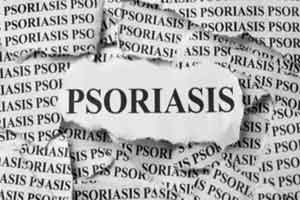- Home
- Editorial
- News
- Practice Guidelines
- Anesthesiology Guidelines
- Cancer Guidelines
- Cardiac Sciences Guidelines
- Critical Care Guidelines
- Dentistry Guidelines
- Dermatology Guidelines
- Diabetes and Endo Guidelines
- Diagnostics Guidelines
- ENT Guidelines
- Featured Practice Guidelines
- Gastroenterology Guidelines
- Geriatrics Guidelines
- Medicine Guidelines
- Nephrology Guidelines
- Neurosciences Guidelines
- Obs and Gynae Guidelines
- Ophthalmology Guidelines
- Orthopaedics Guidelines
- Paediatrics Guidelines
- Psychiatry Guidelines
- Pulmonology Guidelines
- Radiology Guidelines
- Surgery Guidelines
- Urology Guidelines
Halobetasol propionate safe,effective treatment of psoriasis

A new study published in Journal of Drugs in Dermatology reports that Halobetasol propionate 0.01 percent lotion (BRYHALI Lotion) appears safe and effective for the treatment of moderate-to-severe plaque psoriasis.
Lawrence J. Green and associates conducted a study to investigate the safety and efficacy of halobetasol propionate 0.01% lotion in moderate-to-severe plaque psoriasis.
Read Also: Alternative medicine therapies found effective in Psoriasis : JAMA
The investigators conducted two multicentered, randomized, double-blind, vehicle-controlled phase 3 studies (N=430) where the study participants were randomized (2:1) to halobetasol propionate 0.01% lotion or vehicle once-daily for 8 weeks, 4-week posttreatment follow-up.
Key study findings:
- Halobetasol propionate 0.01% lotion demonstrated statistically significant superiority over the vehicle as early as week 2.
- By week 8, 36.5% (Study 1) and 38.4% (Study 2) of subjects were treatment successes compared with 8.1% and 12.0% on the vehicle.
- Halobetasol propionate 0.01% lotion was also superior in reducing psoriasis signs and symptoms, body surface area (BSA), and improving quality of life.
- Halobetasol propionate 0.01% lotion was well-tolerated with no treatment-related AEs greater than 1%.
Read Also: Certolizumab Pegol for the Treatment of Chronic Plaque Psoriasis-Phase 3 Trial Report
The study concluded that Halobetasol propionate 0.01% lotion was associated with significant reductions in the severity of the clinical signs of psoriasis, without the safety concerns of a longer treatment course.
Psoriasis is a chronic, immune-mediated disease that affects approximately 2% of the population. The use of topical therapy is a key component in the management of almost all psoriasis patients. Topicals are considered first-line therapy for mild disease and are having an increasing role in moderate-to-severe psoriasis. The use of topical corticosteroids (TCS) is commonplace, mainly due to their immunosuppressive, anti-inflammatory, and anti-proliferative properties.
For reference log on to http://jddonline.com/articles/dermatology/S1545961618P1062X/1

Disclaimer: This site is primarily intended for healthcare professionals. Any content/information on this website does not replace the advice of medical and/or health professionals and should not be construed as medical/diagnostic advice/endorsement or prescription. Use of this site is subject to our terms of use, privacy policy, advertisement policy. © 2020 Minerva Medical Treatment Pvt Ltd